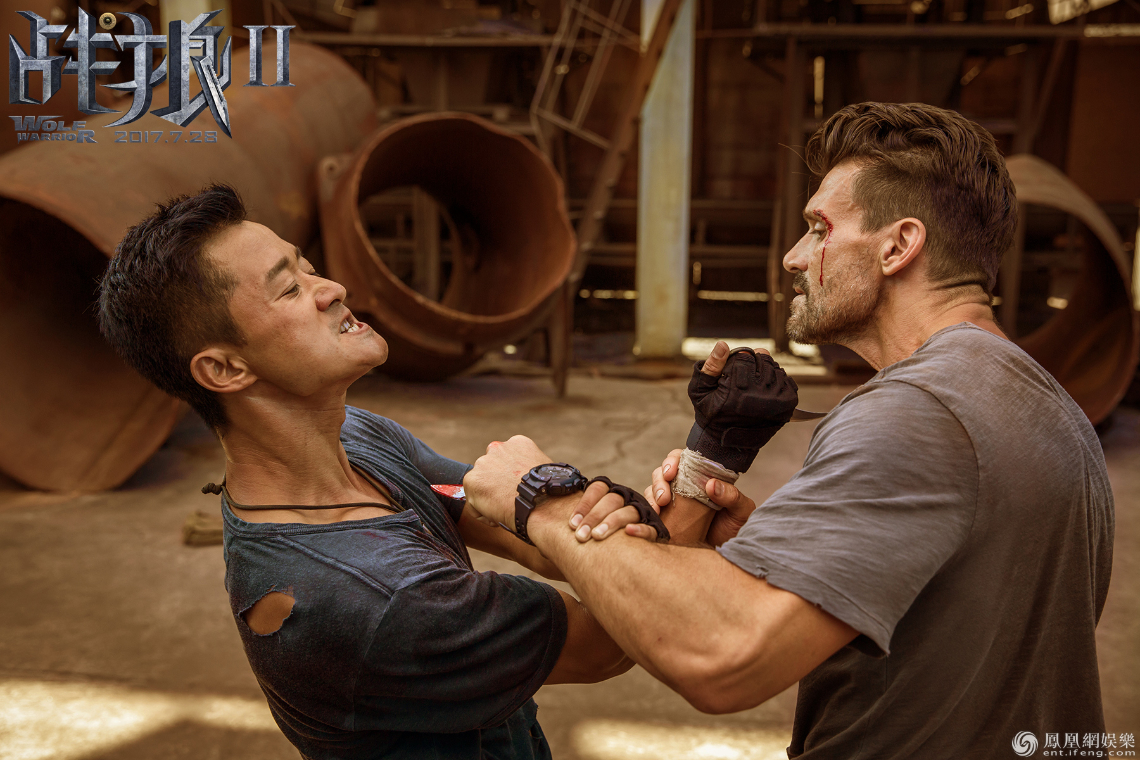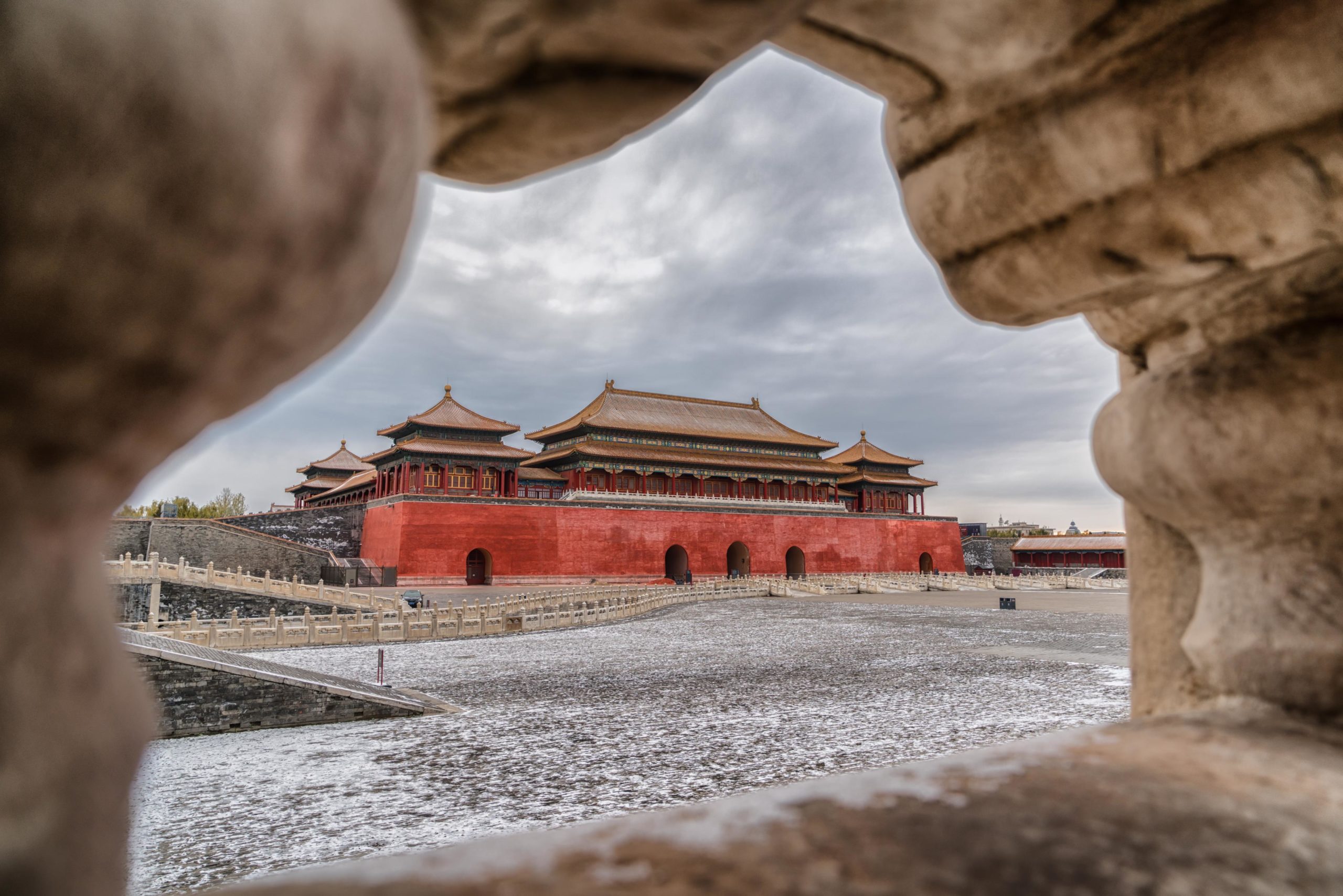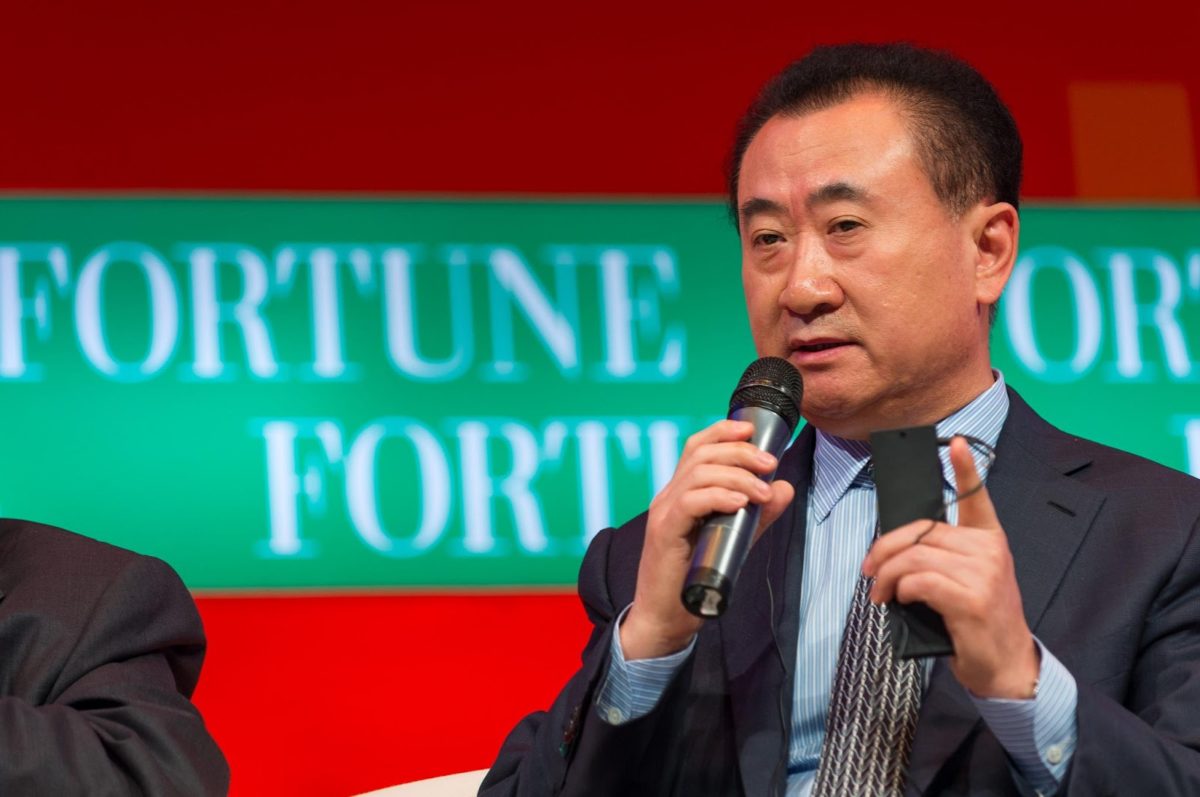Patriotic flicks and studio politics: A record-shattering time in Chinese cinema
Pang-Chieh Ho gives you the latest news from one of China’s most dynamic industries.

Welcome to the first issue of Pang-Chieh Ho’s biweekly roundup of the latest in Chinese movies and television. Think of it as a well-sourced complement to The China Project’s Society and Culture feed, written by Jiayun Feng.
Patriotic action movie shatters China’s box office record
On August 8, Mtime reported (in Chinese) that Wolf Warriors 2 (战狼二 zhàn láng èr) had surpassed Stephen Chow’s The Mermaid to become the highest-grossing movie in China’s box office history. An action movie with unabashedly patriotic and nationalist overtones, Wolf Warriors 2 tells the story of an ex-Special Forces operative who is living a life of relative peace in Africa but is forced to step up to save the day when American mercenaries begin to terrorize the civilian communities living there. While the reception of the movie has been mixed, with reviews from RogerEbert.com and Initium Medium panning the movie for its heavy-handed propagandism, that hasn’t stopped Wolf Warriors 2 from continuing to dominate China’s box office (link in Chinese).

The movie’s success is especially remarkable when considering the fact that China’s box office growth has been sluggish since 2016, dropping from an annual average growth rate of 35 percent to merely 3.7 percent last year, according to the Hollywood Reporter. Wolf Warriors 2’s widespread popularity could be attributed to timing, Sixth Tone suggests, as the movie debuted during a time when people’s nationalist sentiments were running high due to border disputes between China and India. Chinese media outlets like Yiqipaidianying, however, have contended (link in Chinese) that the high production values and Hollywood-caliber action sequences were some of the movie’s main drawing points for Chinese audiences.
Read more about Wolf Warriors 2 on The China Project: “Director of patriotic blockbuster publishes passport scans to prove he is Chinese”
Not every state propaganda film, however, has been celebrated in China
Although The Founding of an Army (建军大业 jiàn jūn dà yè), a movie commissioned by the government to commemorate the 90th anniversary of the People’s Liberation Army (PLA), debuted on the same weekend as the similarly patriotic Wolf Warriors 2, the fates of the two movies have been markedly different. Days before the movie premiered, Ye Daying 叶大鹰, film director and grandson of military commander Ye Ting 叶挺, took to Weibo to decry the movie’s casting (in Chinese), particularly the hiring of comedic actors and young, attractive male idols, otherwise known in China as “little fresh meats” (小鲜肉 xiǎo xiān ròu), in the roles of the movie’s main leads. In his post, Ye accused the movie’s producers of distorting history in favor of profit and entertainment and described the choice of having “effeminate actors who can barely stand up straight” portray army officers as “disgraceful.”

Ironically, despite the movie’s attempts to lure young moviegoers with a star-studded cast, The Founding of an Army hasn’t fared well at the box office. Yiqipaidianying reports (in Chinese) that even after the state media regulator encouraged many theaters to give the movie at least a 45 percent screen share during its opening weekend and promised exhibitors bonuses if they met the quota, the movie still lagged behind Wolf Warriors 2 by a large margin. Representatives of the movie’s marketing, however, have refuted such claims and told the Global Times that the numbers of screens allocated to The Founding of an Army was based on market demand and not on any government directive.
Read more about The Founding of an Army on The China Project: “Controversy over ‘fresh meat’ in propaganda film”
China strengthens control on prime-time TV, cuts back on variety and reality shows
On August 5, The Paper reported (in Chinese) that the State Administration of Press, Publication, Radio, Film and Television (SAPPRFT) had issued a new notice regulating prime-time TV broadcasting in China. The latest guidelines from the state’s top media regulator prescribed an increase of programming about culture, technology, and economics and cutbacks on programs too focused on “entertainment” and “politically sensitive material” during prime time. Variety and reality shows that relied heavily on the participation of celebrities to boost their ratings were singled out in the notice, and shows that were adapted from foreign variety and reality show formats were banned (link in Chinese) from prime time.
The SAPPRFT has, in the past few months, become more stringent in the monitoring of movies, TV, and online content. And with the Communist Party’s National Congress and the 90th anniversary of the founding of the PLA both occurring this year, China’s administration has lately become more aggressive in its propagandistic directives. Earlier last month, Sina revealed (in Chinese) that the SAPPRFT had instructed TV stations to stop airing period dramas and dramas starring young idols, genres that are both hugely popular in China. Instead, broadcasters were advised by the administration to air 17 government-approved propagandistic dramas during prime time in order to foster an atmosphere of political solidarity.
Wang Jianlin’s Hollywood dream hits a snag
The Los Angeles Times reported on July 27 that Wang Jianlin 王健林, the founder of Dalian Wanda Group and one of China’s richest men, was selling off part of his Qingdao Movie Metropolis complex. The movie metropolis was meant to be the biggest movie complex in the world and was part of Wanda’s many efforts to solidify its position as an industrial powerhouse in the global movie industry. Wang’s sudden sell-off of the Chinese movie complex has been interpreted as part of his company’s broader plans to reduce debts and embrace an asset-light strategy, a strategy that the Los Angeles Times speculates may be connected to the Chinese government’s recent calls for private companies to reduce leverage.

The sell-off of the Qingdao Movie Metropolis is only the latest incident in a series of setbacks Wanda has faced expanding its global entertainment empire. Despite Wang Jianlin’s bold declaration last year that his company was interested in acquiring a Hollywood major (link in Chinese), Wanda’s plans to purchase Dick Clark Productions and a 49 percent share of Paramount Pictures were both scuttled this year (link in Chinese), as noted by NDTV. On the side of movie production, its success has been middling, as Legendary Pictures, the studio acquired by Wanda for $1.9 billion (paywall), has produced more hits than misses as of late, and its chief executive, Thomas Tull, departed the company this January.
Read more about Dalian Wanda on The China Project: “Schadenfreude: The decline of the empire of Wanda”





